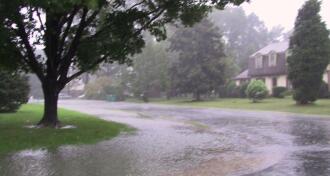Scott D. Weiss, Esq. of Ortale Kelley Law Firm in Nashville, Tennessee, focused his lens at the Community Associations Institute's ("CAI") Annual Law Seminar on a relatively new phenomenon that is fast becoming one of the most important issues for community associations nationwide: the challenges presented by corporate investors owning large portfolios of properties in common interest communities.
We have been monitoring the growth in corporate ownership in communities for years in North Carolina, and Mr. Weiss's nationally-focused presentation confirmed several of our assumptions.
The presentation opened by highlighting the primary reasons corporate investors target community associations, namely:
- There is a legal structure in place to preserve the quality of their investment (e.g., keep the community up); and,
- If the corporate investor purchases enough homes, it can obtain a controlling interest or something close to it.
The national statistics show that corporate investors as large players in the community association scene are not just a possibility, it is a present reality. In the fourth quarter of 2021, 18% of new home purchases were made by corporate investors. That number climbed to 19.4% in the first quarter of 2022 and further to 20.1% in the second quarter of 2022 (87,500 homes)! These figures include single-family and multi-family homes (like townhomes and condominiums), with single-family home purchases being the most popular among investors.
But why does all of this matter? Simply put, corporate investors have the financial wherewithal and sophistication to enter a community, purchase a significant block of property, and use the existing legal structure to adapt the community to their needs/desires. All of this is perfectly legal under existing law in North Carolina, making it even more of a potential issue for community associations to address.
In the absence of legislative intervention, receiving and addressing corporate investor ownership will require a proactive approach—with special attention being paid to the state and condition of the community's governing documents. With the right planning and counsel, communities can educate and prepare themselves for how best to navigate this new wave of consolidated ownership. We are here to help.
Special thanks to Mr. Weiss for a fantastic presentation and to all of the folks at CAI who had a hand in making the 2023 Community Association Law Seminar a success.
Ward and Smith's Community Associations Practice Group represents owners' associations in condominium, townhome, and single-family communities in addition to commercial/business communities, such as retail shopping centers, parking lots, wet and dry boat slip condominiums, yacht clubs, and other mixed-use communities. Our mission is to give experienced counsel and clear advice to boards of directors for the proper governance and administration of community associations, with the underlying goals of protecting and enhancing the quality of life in communities for the long term.








